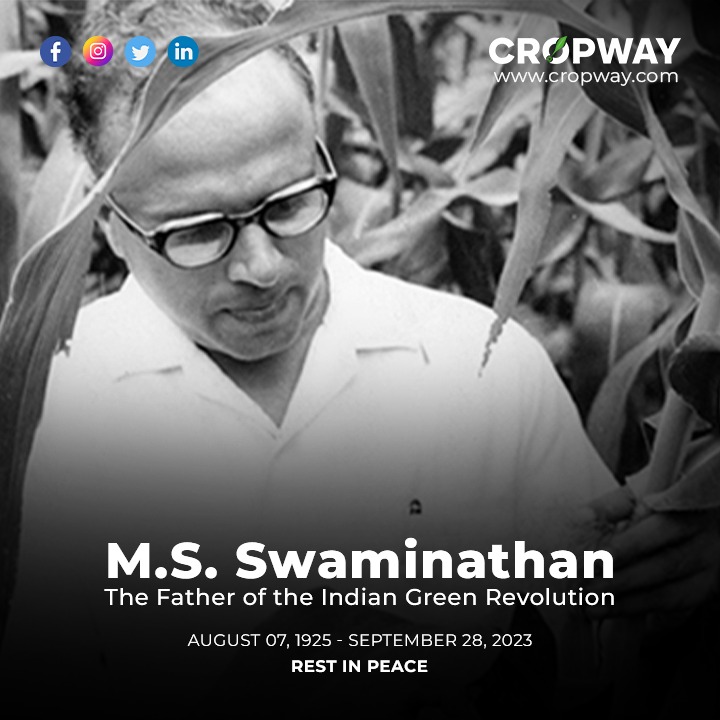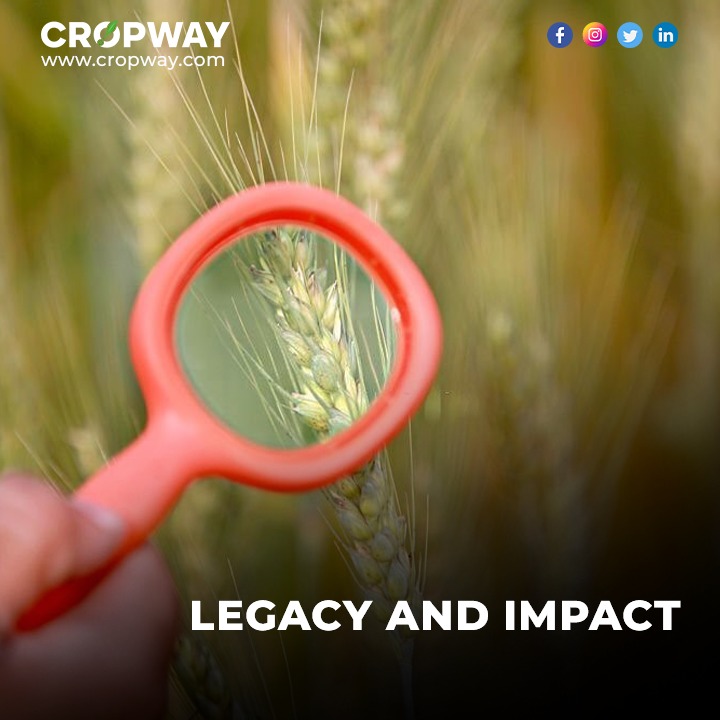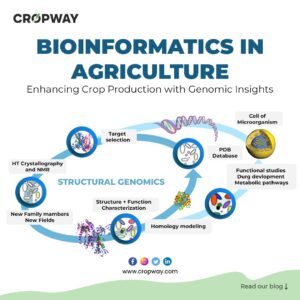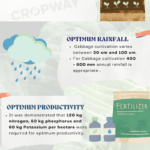
The Green Revolution, a term synonymous with India’s remarkable agricultural transformation, would not have been possible without the pioneering efforts of one man: Dr. Mankombu Sambasivan Swaminathan, lovingly known as the “Father of the Indian Green Revolution.” His relentless commitment to improving India’s food security and agricultural practices has left an indelible mark on the nation’s history and continues to inspire generations of farmers, scientists, and policymakers.
Early Life and Education
Born on August 7, 1925, in Kumbakonam, Tamil Nadu, M.S. Swaminathan hailed from a family deeply rooted in agriculture. His upbringing instilled in him a profound respect for the farming community and an understanding of their struggles. Swaminathan’s educational journey took him to some of the world’s most prestigious institutions, including the Indian Agricultural Research Institute (IARI) in Delhi, where he completed his Ph.D. in Genetics and Plant Breeding.
The Visionary Scientist
M.S. Swaminathan’s journey as a scientist began with a simple yet groundbreaking vision: to end India’s dependence on food aid and make the country self-sufficient in food production. He firmly believed that a scientific approach to agriculture could significantly increase crop yields and alleviate hunger and poverty.
During the late 1960s and 70s, a prominent agriculturalist and plant geneticist played a pivotal role in introducing modern farming techniques to India. This effort, commonly referred to as India’s Green Revolution, had a profound impact on the country. It made India self-sufficient in food production, alleviating widespread hunger, particularly in the northern states of Punjab and Haryana.
The Green Revolution was marked by the introduction of high-yielding cereal varieties, expanded irrigation practices, and increased fertilizer usage. This initiative led to a remarkable surge in grain production precisely when India was grappling with a severe food crisis.
Through his work, which involved developing improved wheat and rice strains and providing training to farmers on their cultivation, this individual significantly contributed to India’s transformation from a nation struggling with famine to becoming a net food exporter.
Key Contributions to the Green Revolution

- High-Yielding Varieties (HYVs): Swaminathan’s pioneering work in developing high-yielding wheat and rice varieties, known as HYVs, played a pivotal role in increasing crop productivity. These varieties were resistant to diseases, adapted to diverse climatic conditions, and significantly boosted food grain production.
- Intensive Research: Swaminathan’s research and field trials paved the way for the successful adoption of modern agricultural techniques, such as improved irrigation, balanced use of fertilizers, and integrated pest management.
- Agricultural Policies: He actively advocated for policy changes that would support farmers, including fair pricing, subsidies, and access to credit. His efforts led to the establishment of the National Commission on Farmers, popularly known as the Swaminathan Commission, which addressed various issues concerning agriculture and recommended policies for sustainable farming.
- Sustainable Agriculture: Dr. Swaminathan was a strong proponent of sustainable and eco-friendly farming practices. He emphasized the importance of conserving natural resources, promoting biodiversity, and reducing the environmental impact of agriculture.
Legacy and Impact

The Green Revolution spearheaded by M.S. Swaminathan had a profound impact on India’s agriculture and food security. It not only transformed India from a food-deficient nation to a self-reliant one but also positioned the country as a leading global food producer. His work helped improve the livelihoods of millions of farmers and elevated India’s status as an agricultural powerhouse.
Swaminathan’s commitment to alleviating hunger and poverty through science and technology remains an inspiration to generations of agricultural scientists, policymakers, and social activists. His holistic approach to agriculture, combining scientific innovation with ethical and sustainable practices, continues to shape India’s agricultural landscape.
Conclusion
Dr. M.S. Swaminathan’s legacy as the “Father of the Indian Green Revolution” is a testament to the transformative power of visionary leadership and scientific innovation. His unwavering dedication to improving food security and the lives of Indian farmers has left an enduring mark on the nation’s history. As India faces new challenges in agriculture and sustainability, the principles and values championed by M.S. Swaminathan serve as a guiding light for a brighter, more sustainable future.







